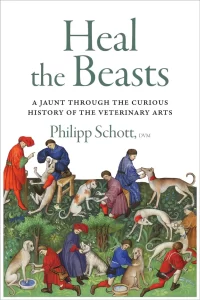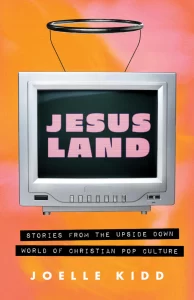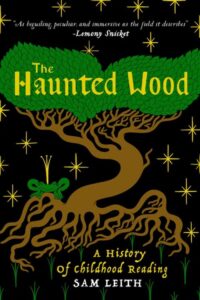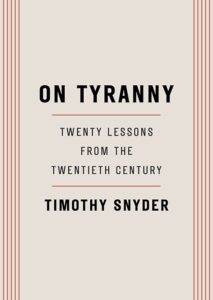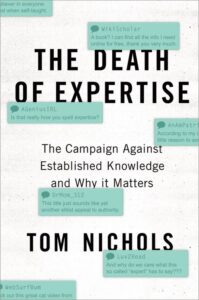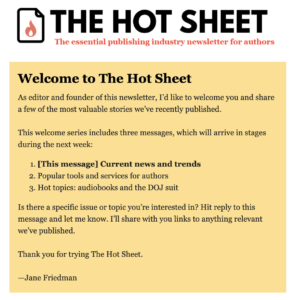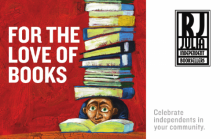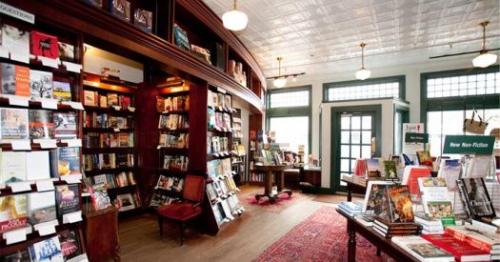Publishing Talks Interview with Jack David of ECW Press
January 6, 2025 by David
Filed under Ebooks and Digital Publishing, Publishing History, PublishingTalks, Technology, The Future
 I began Publishing Talks a number of years ago as a series of conversations with book industry professionals and others involved in media and technology. Most of these interviews originally involved the future of publishing, books, and culture, talking with people in the book industry about how publishing is evolving in the context of technology, culture, and economics.
I began Publishing Talks a number of years ago as a series of conversations with book industry professionals and others involved in media and technology. Most of these interviews originally involved the future of publishing, books, and culture, talking with people in the book industry about how publishing is evolving in the context of technology, culture, and economics.
Later this series broadened to include conversations to go beyond the future of publishing. In an effort to document the literary world, I’ve talked with a variety of editors, publishers and others who have been innovators and leaders in independent publishing in the past and into the present.
These conversations have been inspirational to me on many levels. I have gotten to speak with visionaries and entrepreneurs, as well as editors and publishers who have influenced and changed contemporary literature and culture. I’ve also had the opportunity to speak with a number of friends and colleagues I have met or worked with during the many years I have been in the book business.
More recently, I’ve been talking to book folks about what is going on in publishing today, quite often about the changes in marketing and promotion that have marked all media industries as social media has overwhelmed traditional media, creating an extremely complex and constantly changing environment.
One thing is certain about publishing – there are no final answers, but there are many really important questions that we should be asking all the time.
ECW is a terrific independently owned and operated Canadian publisher, now celebrating its 50th anniversary. I’ve known Jack David, one of its co-founders, for a long time. He is a really smart guy, and notably has managed (with the help of partners and a great staff) to create a thriving independent publishing business across the five decades the book business has changed the most in its history. It is decidedly difficult to be a book publisher in any time and place, but I think being commercially viable for a half century and being based in a relatively small market country with a geographical spread greater than the US makes ECW’s success even more remarkable. ECW does things its own way, to its advantage, in the long run. Unlike most publishers, they publish their own audio books. And their list is built the old fashioned way – through the enthusiasms of its editors. There is much here to be admired and learned from, not just for book publishers, but for anyone interested in media in the modern era.
Talking to Jack about books and culture is always fun. Getting to talk to him about book publishing for this podcast was and is a distinct pleasure I hope you will enjoy as much as I did.
Editor’s note: this interview runs longer than most (60 minutes)
Here is what ECW says about itself:
“ECW is Entertainment. ECW is Culture. ECW is Writing.”
Publishers Weekly recognizes ECW Press as one of the most diversified independent publishers in North America. ECW Press has published close to 1,000 books that are distributed throughout the English-speaking world and translated into dozens of languages. In the next year, we’ll release 50+ new titles and will continue to support and promote a vibrant backlist that includes poetry and fiction, pop-culture and political analysis, sports books, biography, and travel guides. Books by writers whose names you know and love — and by those who we’re very pleased to introduce for the first time. Who are we? After three decades, we still get asked about our name, those three little letters: ECW.
At first the acronym was self-descriptive: Essays on Canadian Writing (the name of the journal of literary criticism we started in 1974). But as the company grew and changed, our name, in our minds, also changed. We’ve heard the company called Essential Canadian Writing, Excellent Contemporary Writing, or, more recently, Extreme Cutting-Edge Writing. And these names have been, and still are, appropriate. But now we realize that each of those letters represents a particular strain of ECW Press’s diverse passions — Entertainment, Culture, Writing.
Podcast: Play in new window | Download
Publishing Talks Interview with Ken Whyte of Sutherland House
October 22, 2024 by David
Filed under Publishing History, PublishingTalks, The Future
 I began Publishing Talks a number of years ago as a series of conversations with book industry professionals and others involved in media and technology. Most of these interviews originally involved the future of publishing, books, and culture, talking with people in the book industry about how publishing is evolving in the context of technology, culture, and economics.
I began Publishing Talks a number of years ago as a series of conversations with book industry professionals and others involved in media and technology. Most of these interviews originally involved the future of publishing, books, and culture, talking with people in the book industry about how publishing is evolving in the context of technology, culture, and economics.
Later this series broadened to include conversations to go beyond the future of publishing. In an effort to document the literary world, I’ve talked with a variety of editors, publishers and others who have been innovators and leaders in independent publishing in the past and into the present.
These conversations have been inspirational to me on many levels. I have gotten to speak with visionaries and entrepreneurs, as well as editors and publishers who have influenced and changed contemporary literature and culture. I’ve also had the opportunity to speak with a number of friends and colleagues I have met or worked with during the many years I have been in the book business.
More recently, I’ve been talking to book folks about what is going on in publishing today, quite often about the changes in marketing and promotion that have marked all media industries as social media has overwhelmed traditional media, creating an extremely complex and constantly changing environment.
One thing is certain about publishing – there are no final answers, but there are many really important questions that we should be asking all the time.
I recently had the opportunity to (virtually) meet and talk to Kenneth (Ken) Whyte, founder and president of the Toronto based Sutherland House publishing company. I discovered Ken through his excellent and thoughtful newsletter called SHuSh, where he writes about a wide range of book industry matters as well as people and books he is connected to or has published. Ken started in journalism and magazine writing and publishing, wrote nonfiction books himself, and then started Sutherland House. One might reasonably question why any sane person would start a commercial publishing house in the current troubled media environment, but Sutherland House appears to be successful and is clearly well run and intelligently managed. I thought it would be interesting and valuable to talk to Ken about his thinking about books and publishing. He is an innovator and clearly a smart publisher who has figured out how to sell books.
We talked about a wide range of subjects and concerns that will be of interest to anyone who follows current publishing and media trends. We talked about the current state of Canadian publishing, which is simultaneously similar and very different from the US publishing scene. And we talked as well about many of the challenges and opportunities that exist for publishers and authors in Canada and the USA alike. We talked about AI and its actual uses in publishing, consolidation in retail and how publishers must navigate markets, author income issues, ebooks, book pricing, changes in the overall media landscape, and much more.
From the Sutherland House website:
At Sutherland House, we believe in the power of a distinct aesthetic, and each of our publications reflects the unique essence of our brand. From inception to launch, every title undergoes meticulous market testing to ensure its resonance with our discerning readership. All of our books are simultaneously published in both Canada and the United States, supported by robust sales and distribution channels in both countries.
Kenneth Whyte was editor-in-chief of Saturday Night Magazine, founding editor of The National Post, editor and publisher of Maclean’s, president of Rogers Publishing, and founding president of Next Issue Canada. He is the author of The Sack of Detroit: General Motors and the End of American Enterprise and The Uncrowned King: The Sensational Rise of Willian Randolph Hearst.
Podcast: Play in new window | Download
Publishing Talks Interview with Leah Paulos Press Shop PR
September 4, 2024 by David
Filed under PublishingTalks, The Future
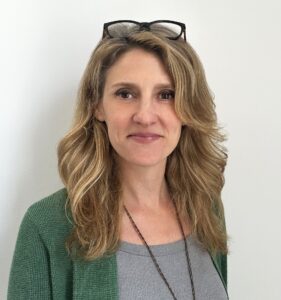 Publishing Talks began years ago as a series of conversations with book industry professionals and others involved in media and technology. Most of these interviews originally involved the future of publishing, books, and culture, talking with people in the book industry about how publishing is evolving in the context of technology, culture, and economics.
Publishing Talks began years ago as a series of conversations with book industry professionals and others involved in media and technology. Most of these interviews originally involved the future of publishing, books, and culture, talking with people in the book industry about how publishing is evolving in the context of technology, culture, and economics.
Later this series broadened to include conversations to go beyond the future of publishing. In an effort to document the literary world, I’ve talked with a variety of editors, publishers and others who have been innovators and leaders in independent publishing in the past and into the present.
These conversations have been inspirational to me on many levels. I have gotten to speak with visionaries and entrepreneurs, as well as editors and publishers who have influenced and changed contemporary literature and culture. I’ve also had the opportunity to speak with a number of friends and colleagues I have met or worked with during the many years I have been in the book business.
More recently, I’ve been talking to book folks about what is going on in publishing today, quite often about the changes in marketing and promotion that have marked all media industries as social media has overwhelmed traditional media, creating an extremely complex and constantly changing environment.
One thing is certain about publishing – there are no final answers, but there are many really important questions that we should be asking all the time.
I recently had the opportunity to (virtually) meet and talk to Leah Paulos about some of these questions. Leah is the Founder and Director of Publicity at Press Shop PR and Book Publicity School, and has worked in books and media for over 25 years. Leah has spoken on book publicity at Columbia School of Journalism, CUNY Graduate Center, and as part of her regular workshop series, Book Publicity for Literary Agents. She’s been a magazine editor and a writer, before shifting careers and becoming a book publicist in 2006. She launched her own business, Press Shop PR in 2012 and has worked on campaigns for over 300 authors since its launch, including for ON TYRANNY by Timothy Snyder, MARCH by Rep. John Lewis, and WELCOME TO THE UNIVERSE by Neil deGrasse Tyson.
In 2023, Leah launched Book Publicity School to bring professional PR support directly to authors, as so often today, book publishers require their authors to lead their own publicity efforts. With workshops and coaching programs, Book Publicity School provides authors with tools, strategies, and know-how to effectively advocate for their own work.
With an ever increasing abundance of book product in the market, every author and every publisher is desperately trying to figure out how to reach readers. Our creativity and ability to innovate are constantly being challenged. We need more conversations like this one to help spur us advance our thinking. Authors and publishers alike want to know what works, what doesn’t. And what is on the horizon. Since everything is changing all the time, the only way to keep up is to talk to as many people as possible about what they are doing and what they are observing. I hope this conversation will therefore be useful to writers, publishers, and readers as well.
Please ping me if you have any questions or ideas spurred by this discussion.
Podcast: Play in new window | Download
Publishing Talks Interview with Jane Friedman of Hot Sheet
December 28, 2023 by David
Filed under Ebooks and Digital Publishing, Publishing History, PublishingTalks, The Future
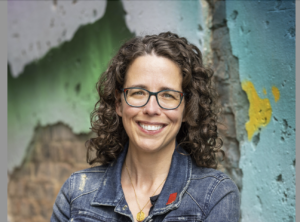 Publishing Talks began first as a series of conversations with book industry professionals and others involved in media and technology, mostly talking about the future of publishing, books, and culture. It was great fun talking with people in the book industry about the evolution of publishing in the context of technology, culture, and economics. Over the years, I talked with a variety of editors, publishers and others, innovators and leaders in independent publishing and bookselling in the past, and into the present.
Publishing Talks began first as a series of conversations with book industry professionals and others involved in media and technology, mostly talking about the future of publishing, books, and culture. It was great fun talking with people in the book industry about the evolution of publishing in the context of technology, culture, and economics. Over the years, I talked with a variety of editors, publishers and others, innovators and leaders in independent publishing and bookselling in the past, and into the present.
These conversations have been inspirational to me. I have had the pleasure of speaking with people who have influenced and changed contemporary literature and culture. I’ve also had the opportunity to speak with a number of friends and colleagues in the book business, always trying to explore and understand the complex web of books, authors and readers that is at the heart of our evolving culture.
Every year, ever more new books are published, and the “rules of the game” evolve faster than most of us can keep up. Given the pace of change in the book industry, I could not think of anyone better to learn about the latest trends and developments than Jane Friedman, whose insights and breadth of knowledge are unmatched among industry observers. I first spoke with her in 2015 and then again in 2022, and I always learn a great deal from her in every conversation we have.
Jane publishes a bi-weekly industry newsletter, a must-read for anyone involved with publishing, called The Hot Sheet. Her most recent book is The Business of Being a Writer (University of Chicago Press). Collaborating with The Authors Guild, she wrote The Authors Guild Guide to Self-Publishing. In 2023, Jane was awarded Publishing Commentator of the Year by Digital Book World.
You might also have heard of Jane because of her experience with AI book fraud, which she wrote about in August 2023. She has put together a roundup of the extensive coverage and interviews about what happened, which you can explore here.
And she publishers yet another newsletter for writers and creators called Electric Speed, which is also worthwhile subscribing to.
Her website offers a wide range of services and information for writers: “I report on the book publishing industry and help authors understand the business. I’ve been working in book publishing since the 1990s, but my views are not from the 1990s. Amidst rapid change in the industry, writers need honest and unbiased guidance to make the best decisions for their careers. I hope to offer you a signal amidst the noise.”
Jane Friedman is a very busy woman, I am truly grateful that she was able to take some time to talk to me about the latest goings on in publishing.
Writerscast began in 2008! Thanks to all who have participated and all of you who have listened to this series over the past 15 years. It’s been fun.
Podcast: Play in new window | Download
Publishing Talks: Interview with Dan Harke of Mayo Clinic Press
October 5, 2022 by David
Filed under PublishingTalks, The Future
 Publishing Talks began as a series of conversations with book industry professionals and others involved in media and technology, mostly talking about the future of publishing, books, and culture. I’ve spent time talking with people in the book industry about how publishing is evolving in the context of technology, culture, and economics.
Publishing Talks began as a series of conversations with book industry professionals and others involved in media and technology, mostly talking about the future of publishing, books, and culture. I’ve spent time talking with people in the book industry about how publishing is evolving in the context of technology, culture, and economics.
Some time back, this series broadened to include conversations that go beyond the future of publishing. In an effort to document the literary world, I’ve talked with a variety of editors, publishers and others who have been innovators and leaders in independent publishing in the past and into the present.
These conversations have been inspirational to me on many levels. I have gotten to speak with visionaries and entrepreneurs, as well as editors and publishers who have influenced and changed contemporary literature and culture. I’ve also had the opportunity to speak with a number of friends and colleagues I have met over the many years I have been in the book business.
This week, I talked to Dan Harke, who manages the Mayo Clinic Press in Rochester, Minnesota. Mayo Clinic is doubtless familiar to Writerscast listeners – it is probably the best-known health care organization in America. It has 73,000 employees (including thousands of MDs) and cares for more than 1.4 million people annually. Mayo is almost always ranked as the number one hospital in the US.
For many years, Mayo Clinic licensed content to established publishers, and sold books direct to consumer only through its mail order business associated with its long-running Mayo Health Letter. Several years ago, Mayo established the Mayo Clinic Press to publish its own books, and now is in the process of growing to become a full line trade publisher, while still maintaining its mission-driven commitment to healthcare for the greater good. Aside from consumer health books, Mayo is now publishing children’s books, ebooks, audio books and podcasts, as well as its still vibrant health letter.
Dan comes to publishing from a diverse background with skills and knowledge in health care, marketing, and innovation, which gives him a very different perspective about publishing than many of us with experience mostly in trade publishing, so I think this conversation will be of interest to many Publishing Talks listeners.
You can look at MCP’s terrific website here.
In the interest of full disclosure, I want to mention that I am a consultant to MCP on trade publishing and marketing matters.
Podcast: Play in new window | Download
Publishing Talks: Interview with Mark Hurst of Creative Good
July 17, 2022 by David
Filed under Ebooks and Digital Publishing, PublishingTalks, Technology, The Future
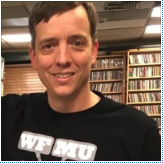 Publishing Talks began as a series of conversations with book industry professionals and others involved in media and technology, mostly about the future of publishing, books, and culture. I’ve spent time talking with people in the book industry about how publishing is evolving in the context of fast-changing technology, culture, and economics.
Publishing Talks began as a series of conversations with book industry professionals and others involved in media and technology, mostly about the future of publishing, books, and culture. I’ve spent time talking with people in the book industry about how publishing is evolving in the context of fast-changing technology, culture, and economics.
Along the way, this series broadened to include conversations that go beyond the future of publishing. In an effort to document the literary world, I’ve talked with a variety of editors, publishers and others who have been innovators and leaders in independent publishing in the past and into the present.
These conversations have been inspirational to me on many levels. I have gotten to speak with visionaries and entrepreneurs, as well as editors and publishers who have influenced and changed contemporary literature and culture. I’ve also had the opportunity to speak with a number of friends and colleagues I have met over the many years I have been in the book business.
The latest visionary is Mark Hurst, who founded and operates Creative Good, a New York-based consultancy and creative platform. Mark has spent his career writing, speaking, and advising teams about how to create better products and services. I’ve been reading his impressive writing for years, and have long admired his thinking and approach to technology, culture, and human behavior. Much of what he writes and talks about can be applied to the publishing industry, especially as it relates to powerfully centralized tech companies like Amazon, Apple, and Google.
Along the way, the very creative Hurst also created the useful and cool Good Todo mobile productivity platform, the world’s first cross-platform todo list, which he described in his first book, Bit Literacy, in which he introduced the “empty inbox” method of managing email (now better known as Inbox Zero – a practice I try to follow daily with mixed success).
Mark also hosts Techtonic – see techtonic.fm – a weekly FM radio show on WFMU. Here’s the Techtonic podcast.
His book Customers Included describes how teams and organizations can create successful products and strategies by including customers, a practice I have often thought publishers could benefit from applying to marketing matters.
Brooklyn 1776, the educational mobile videogame by Hurst and the Creative Good team, won the 2016 Brooklyn Innovation Award for best indie video game.
Mark earned both a bachelor’s and a master’s degrees in computer science from MIT. He lives in New York City with his wife and son.
It was great fun for me to have the opportunity to speak with Mark for this Publishing Talks series on Writerscast. We talked about a wide range of issues that should be of interest to anyone interested in current publishing and media technology matters.
Website: creativegood.com
Email: mark@creativegood.com

Podcast: Play in new window | Download
Publishing Talks: Interview with Jane Friedman
May 10, 2022 by David
Filed under Ebooks and Digital Publishing, Publishing History, PublishingTalks, The Future
 Publishing Talks started as a series of conversations with book industry professionals and others involved in media and technology, mostly talking about the future of publishing, books, and culture. It was great fun talking with people in the book industry about the evolution of publishing in the context of technology, culture, and economics.
Publishing Talks started as a series of conversations with book industry professionals and others involved in media and technology, mostly talking about the future of publishing, books, and culture. It was great fun talking with people in the book industry about the evolution of publishing in the context of technology, culture, and economics.
Later this series broadened considerably. In the past few years, I’ve talked with a variety of editors, publishers and others who have been innovators and leaders in independent publishing and bookselling in the past and into the present.
These conversations have been inspirational to me. I have had the pleasure of speaking with visionaries and entrepreneurs, editors, publishers and others who have influenced and changed contemporary literature and culture. I’ve also had the opportunity to speak with a number of friends and colleagues in the book business.
I’ve not had occasion to speak with the same person twice during all the years this series has gone on. But I really wanted to speak again with Jane Friedman, whose insights and knowledge I thoroughly respect, and get her sense of the current state of publishing and bookselling, especially as it affects writers and independent publishers. Our last Publishing Talks conversation was in 2015! Much has changed since then, and there was much for us to talk about.
Jane publishes a terrific newsletter I read religiously called The Hot Sheet. Her most recent book is The Business of Being a Writer (University of Chicago Press). Collaborating with The Authors Guild, she wrote The Authors Guild Guide to Self-Publishing. Her website offers a wide range of services and information for writers: “I report on the book publishing industry and help authors understand the business. I’ve been working in book publishing since the 1990s, but my views are not from the 1990s. Amidst rapid change in the industry, writers need honest and unbiased guidance to make the best decisions for their careers. I hope to offer you a signal amidst the noise.”
And I hope this conversation does the same.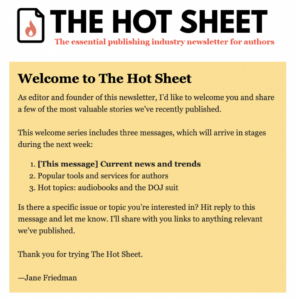
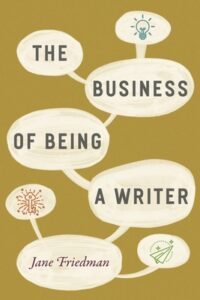
Podcast: Play in new window | Download
Publishing Talks: Interview with Jeff Deutsch of Seminary Co-op Bookstores
October 12, 2021 by David
Filed under PublishingTalks, The Future
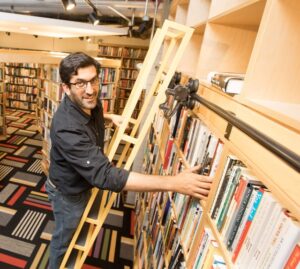 Publishing Talks began as a series of conversations with book industry professionals and others involved in media and technology, mostly talking about the future of publishing, books, and culture. I’ve spent time talking with people in the book industry about how publishing is evolving in the context of technology, culture, and economics.
Publishing Talks began as a series of conversations with book industry professionals and others involved in media and technology, mostly talking about the future of publishing, books, and culture. I’ve spent time talking with people in the book industry about how publishing is evolving in the context of technology, culture, and economics.
Some time back, this series broadened to include conversations that go beyond the future of publishing. In an effort to document the literary world, I’ve talked with a variety of editors, publishers and others who have been innovators and leaders in independent publishing in the past and into the present.
These conversations have been inspirational to me on many levels. I have gotten to speak with visionaries and entrepreneurs, as well as editors and publishers who have influenced and changed contemporary literature and culture. I’ve also had the opportunity to speak with a number of friends and colleagues I have met over the many years I have been in the book business.
This week’s podcast is one I am really excited about. Jeff Deutsch is the director of Chicago’s Seminary Co-op Bookstores, which calls itself the first not-for-profit bookstore in the United States whose mission is devoted to bookselling (there are other nonprofit bookstores of course, generally components of literary centers, like Beyond Baroque in Venice, California, Woodland Pattern in Milwaukee, and Writers and Books in Rochester, NY are examples).
Last spring I read a report of a Book Industry Study Group panel that included Jeff, and what he talked about immediately caught my attention. Deutsch was reported to have said that the model of bookselling we’ve inherited needs to be rethought: just facilitating more sales, more efficiently, is not the way for bookstores to survive. A bookstore that actually means something to readers will need to carry a deep backlist and to spend time helping readers discover new voices, new texts.
During that panel Deutsch said, “The publishing world and distributors—what you value is not our ability to sell books,” because independent bookstores can never sell in the same volume as Amazon. “Yet we all know how important bookstores are,” he said. As publishers and booksellers once knew, developing readerships for books and authors takes time and devotion that have been boiled out of the entire process now.
Jane Friedman’s outstanding book industry newsletter Hot Sheet compared Jeff’s approach to the Slow Food movement (I think that idea makes sense – I wrote a manifesto for publishers a few years ago on the idea of Slow Publishing, but never developed it enough to publish). Nina Barrett, owner of Bookends & Beginnings in Illinois (which has filed a lawsuit against Amazon), also on the BISG panel said “I think it’s like Alice Waters talking for decades about a sustainable food ecosystem and ultimately revolutionizing the food industry that way. That’s the point we’re at.”
As Jane pointed out, “independent booksellers will lose every time if they base their worth on the mere transactional value of selling books. His stance—that bookselling has a deeper meaning and cultural value—is indeed how boutique and online retailers outside of the Amazon ecosystem are positioning themselves for success.”
Deutsch also said, “We should figure out models that support the work that we’re trying to do, not shoehorn this other model of retail that is really just about buying and selling and not about culture….We all have vocational awe, but couldn’t we have vocational awe and still make a decent living?”
This conceptual framework resonates with me and I think is worthy of much more discussion. Why shouldn’t there be a nonprofit bookselling sector to promote literary and other noncommercial books and authors, just as there is a nonprofit theater? Why should we continuously try to fit a crucially important culture activity into a commercial model, and always fail?
I hope that hearing Jeff talk about this concept will help stimulate further discussion and concrete action. Please feel free to comment and if you are interested in helping, please be in touch.
Connect to the Seminary Co-op Bookstores website here.
Before joining the Co-op Deutsch was the director of stores for the Stanford Bookstore Group and prior to that managed the Cal Student Store at the University of California, Berkeley.
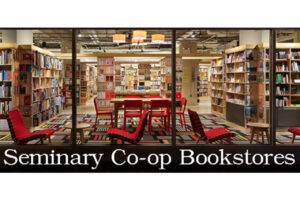
Podcast: Play in new window | Download
Publishing Talks: Interview with Ben Fox of Shepherd.com
September 20, 2021 by David
Filed under PublishingTalks, The Future
 Publishing Talks began as a series of conversations with book industry professionals and others involved in media and technology, mostly talking about the future of publishing, books, and culture. I’ve spent quite a bit of time over the years talking with people in the book industry about how publishing has evolved in the context of technology, culture, and economics.
Publishing Talks began as a series of conversations with book industry professionals and others involved in media and technology, mostly talking about the future of publishing, books, and culture. I’ve spent quite a bit of time over the years talking with people in the book industry about how publishing has evolved in the context of technology, culture, and economics.
Some time back, this series broadened to include conversations that go beyond the future of publishing. In an effort to document the literary world, I’ve talked with a variety of editors, publishers, booksellers, innovators, and leaders in publishing from the past into the present.
These conversations have been inspirational to me in many ways. I have gotten to speak with visionaries and entrepreneurs, as well as editors and publishers who have influenced and changed contemporary literature and culture. I’ve also had the opportunity to speak with a number of friends and colleagues I have met over the decades I have been in the book business.
Everyone in the book business recognizes the challenge of matching books to readers and vice versa. Search and discovery are the defining issues of this era of vast abundance and creativity in books and all media. There have been any number of efforts to address these challenges that go far beyond what any individual author or publisher can accomplish. One new effort that is trying to address the problem of online book discovery is called Shepherd. Ben Fox is the founder of this book search and recommendation website which he describes as being “Like browsing the best bookstore in the world.”
Like so many others who have become involved with the book publishing industry, he was motivated by a love of books and a desire to replicate the experience of browsing in a physical bookstore online. It’s a simple enough proposition in theory, but in practice, we know that nothing is easy for start ups, and especially so for start ups in the book industry.
I learned about Shepherd from an author I have worked with who has become a friend. Since I believe we need to foster creativity and innovation in every aspect of the book delivery chain, I wanted to talk to Ben to find out more about what he is doing, how he is doing it, and how he feels he can make this effort a success.
In a fairly short time, Shepherd has built a robust offering, with book lists of all kinds, and direct connections on the site to a large number of active authors.
Visit Shepherd.com and see for yourself what Ben Fox is doing. It would be interesting to me to hear what you think of it. Does Shepherd help you find books you might not otherwise have discovered? Does meeting authors online make a difference to your sense of their books and your willingness to buy and read them? Does Shepherd succeed in creating an online book browsing experience that matches what a great bookstore can do?
“I love walking around the bookstore and browsing until something grabs my attention. I want to bring that experience online. I want to help readers bump into books they would otherwise not find. And, help them follow their curiosity to new places.
And, I want to help authors meet more readers. Authors illuminate our world, take us on faraway journeys, and entertain us. There is a growing trend that authors have to become their own marketing team. That concerns me because it takes time away from writing and is very hard to do. One of my long-term goals is to help authors market themselves and give them more time to write.” — Ben Fox
It’s pretty obvious that retail shopping is changing. As readers, we need to figure out new ways to discover books, and for writers and publishers, it is crucial that there are a variety of different ways for us to reach out to readers when we have books we want them to know about. I hope Shepherd will succeed.

Podcast: Play in new window | Download
Publishing Talks: Interview with Roxanne Coady of R.J. Julia Booksellers
June 17, 2021 by David
Filed under PublishingTalks, The Future
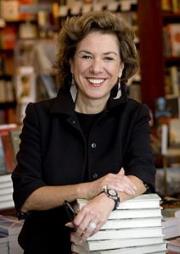 Publishing Talks began as a series of conversations with book industry professionals and others involved in media and technology, mostly talking about the future of publishing, books, and culture. I’ve spent time talking with people in the book industry about how publishing is evolving in the context of technology, culture, and economics.
Publishing Talks began as a series of conversations with book industry professionals and others involved in media and technology, mostly talking about the future of publishing, books, and culture. I’ve spent time talking with people in the book industry about how publishing is evolving in the context of technology, culture, and economics.
Some time ago, this series broadened to include conversations that go beyond the future of publishing. In an effort to document the literary world, I’ve talked with a variety of editors, publishers, booksellers, and others who have been innovators and leaders in independent publishing in the past and in the present.
These conversations have been inspirational to me on many levels. I have gotten to speak with visionaries and entrepreneurs, as well as editors and publishers who have influenced and changed contemporary literature and culture. I’ve also had the opportunity to speak with a number of friends and colleagues I have known over the many years I have been in the book business.
Bookstores have been an essential part of my entire life, even from early childhood, one benefit of growing up with a writer as father. Independent bookselling thrived from the late seventies into the late 1990’s, no doubt reflecting the Baby Boomer generation’s enthusiasm for books and ideas. The last twenty or more years have been very different, and now there are far fewer communities that support bookstores than at anytime in the past fifty years. Bookstores (along with public libraries) are a crucial element of a healthy culture, far more valuable than their size and scope would suggest. Local communities benefit from the presence of bookstores in many ways, and literary culture needs them too, as visible representations of a reading culture. Ideas grow and spread from books, but culture is also built around physically being present with one another.
So it is important for us to find ways as readers and literary citizens, to support bookstores, and it is equally important for booksellers to locate themselves, create and support communities around their stores, to support their workers and to make themselves meaningful enough to be thrive, despite the challenges of being small businesses in a mass-oriented consumer culture.
There are quite a few examples of booksellers who have made just such an impact, and their experiences and ideas are important for all of us to share and understand. It has been a particular pleasure for me to have known and worked with Roxanne Coady, the founder and owner of the exceptional R.J. Julia Booksellers, in Madison, Connecticut. We first met when Roxanne came to Connecticut to establish her new business after pursuing a successful career as a CPA in New York City. Over the years, I have spent many hours browsing their shelves, attending author events, and enjoying the cafe.
R.J. Julia has thrived during the period when local bookselling has faced an array of challenges, first from chain bookstores, then from Amazon and the rise of online retailing, and of course most recently, the pandemic. Throughout this time, Roxanne and her staff have innovated on many levels, including creating a drive-by pickup window for busy parents, putting on over 300 events a year (some of which are with celebrity authors), establishing an active email newsletter, providing online sales with speedy service, podcasting, and building an active book club. Throughout, the emphasis on community, care for staff as individuals, and listening to customers have been paramount characteristics of the enterprise. There is a bit of practical magic at work there, I think.
After more than 30 years of hard work and success, it’s obvious that Roxanne has quite a bit to say about what it takes to be a successful bookseller, to be a locally based business, and to be a crucial part of literary culture. I believe that our conversation should be meaningful for anyone interested in the future success of bookstores and the importance of building a real literary culture within a society that does not put enough value on books, authors, writing.
We need more bookstores! Visit the R.J. Julia Bookseller website and sign up for their newsletter.
Podcast: Play in new window | Download


